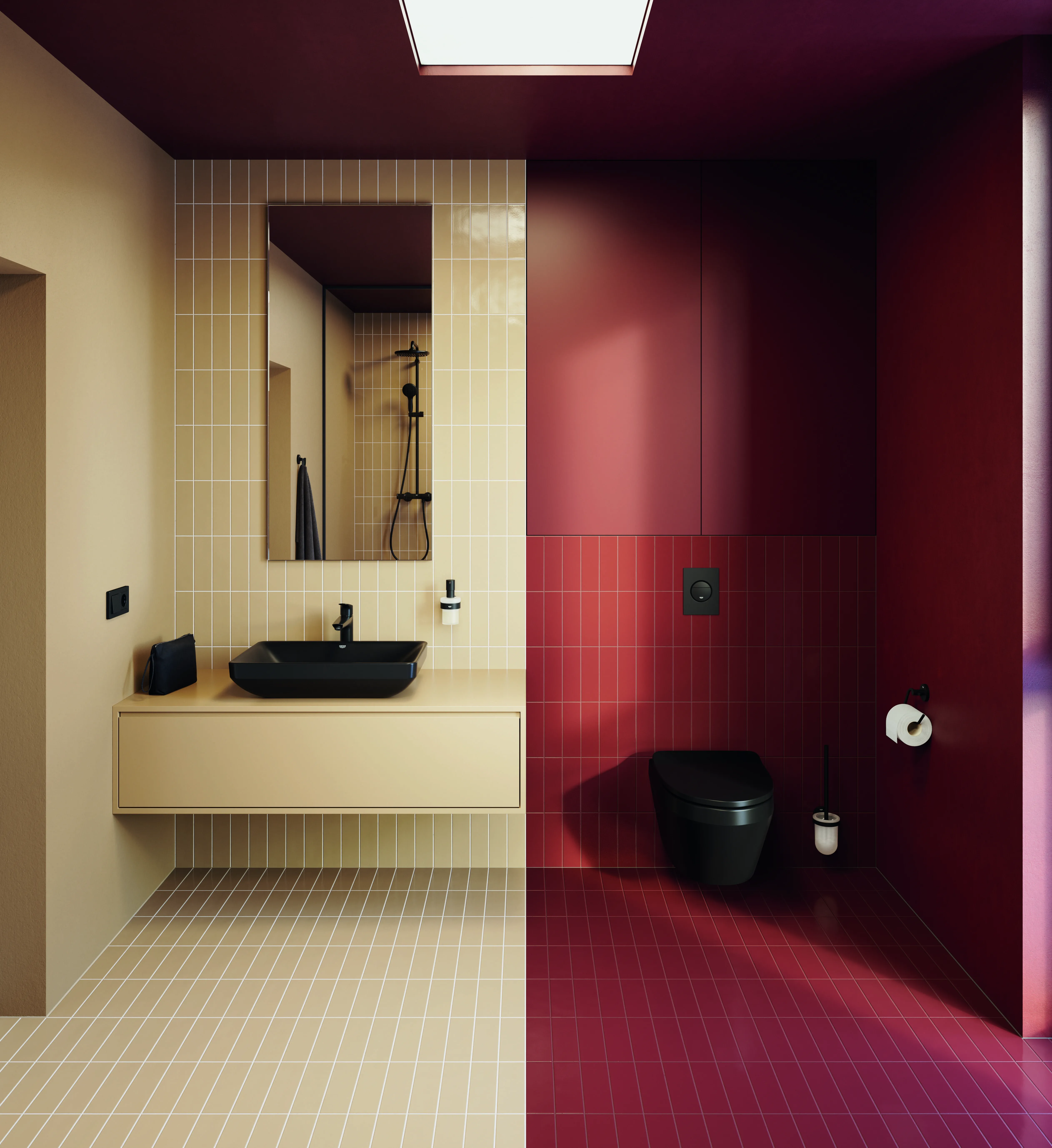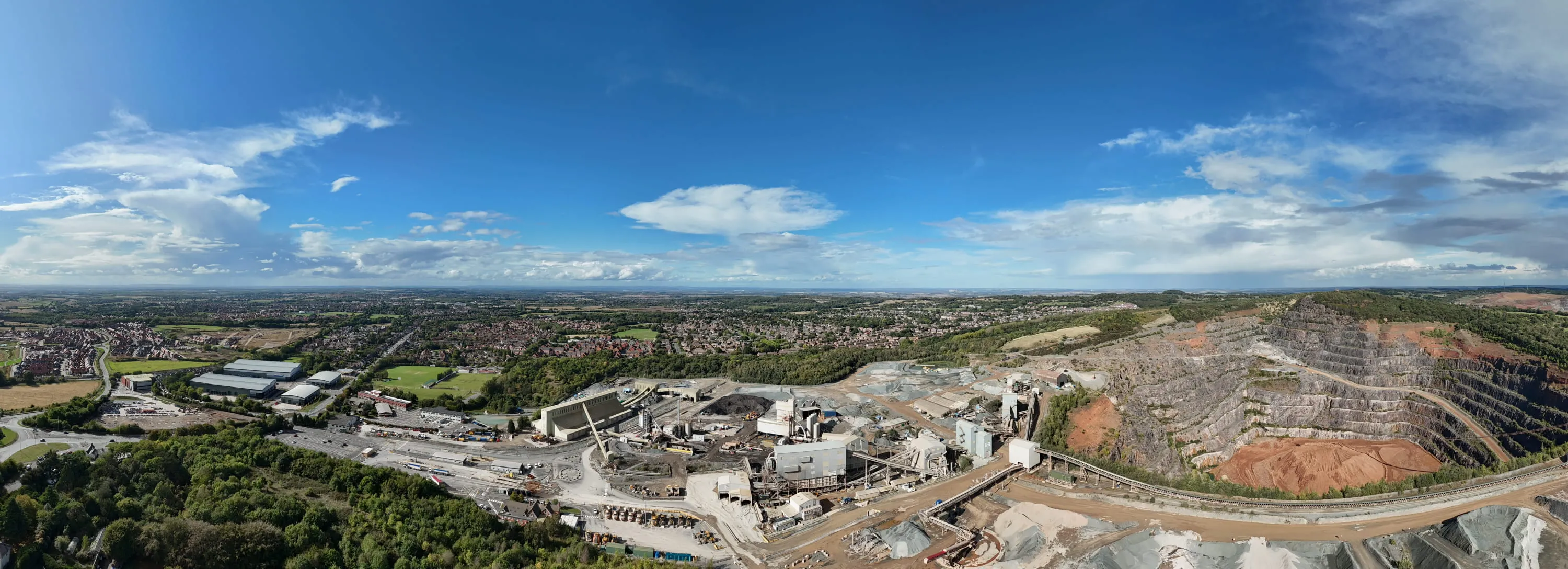By SHRIKANT RAO in Rochester, UK
Under the mandala of a mellow British sun the colour of magic being wrought upon brown earth is a bright flaming yellow. These are the JCB excavators, backhoe loaders, telescopic handlers, wheeled loading shovels, articulated dump trucks and forklifts in action. We are at a test site at Plumpton on the fringe of the West Midlands brewery town of Rochester, which is also the global headquarters of the legendary digger manufacturer JC Bamford, which recently celebrated the production of its one millionth machine - a 22 tonne JS 220 tracked excavator in shimmering silver.
Over 2500 dealers, customers and the world media have been in attendance at the new product presentations and performance displays of JCB machines. To top it all, in what is a first for the company, the press has been made privy to a top secret innovation facility.
The production landmark itself merits being etched in letters of gold. For one million machines translate to lining up JCB's metal goliaths from the United Kingdom to Australia. And indeed that is a huge geographical spread which underlines the global reach of the equipment manufacturer who has left its imprimatur on the construction and agricultural business since 1945.
Just to correct any wrong impression. This piece is not just about great history - JCB, anyway, is that and more. That the British manufacturer reached the landmark product development statistic of one million is not being gloated over with satisfaction by its minders. Also the fact that the feat took all of 68 years - incredibly enough a third of those machines have been produced in the last six years - is not lost upon them. The promise now of delivering a similar next installment of yellow products in the next ten or so years, is testimonial to both ambition and aggression.
But JCB Chairman Sir Anthony Bamford is however predisposed to British understatement, "Given our continuing growth, JCB's two millionth machine will be produced in considerably less time."
It is not difficult to admire a gung ho spirit which seems effortless, and is so very matter of fact.
If JCB weren't a private enterprise many would have been tempted to dub its growth surge as Britain's Second Industrial Coming. Indeed, JCB is one of the great symbols of British manufacturing, an area of development which has seen a progressive low in recent years, and there is solid global evidence to back this. With 22 factories, eleven of them abroad, JCB is third biggest manufacturer by volume of earthmoving machinery in the world after Caterpillar and Komatsu.
Understandably therefore, half a world away, in India, JCB occupies pride of place: it is the number one brand - many would dub it 'King' when it came to construction equipment. It is, in a sense, an extension of Empire in a more benevolent, eminently likeable, and more development friendly form. It is easy to see why Sir Anthony, an early bird who began his operations in the country in 1978, persists with his romantic dalliance, and is wont to trill, "In India, we are regarded as an Indian company."
This is no idle boast. In many ways across India a JCB is a machine of choice - and in some cases is a lifesaver. It was a JCB that proved to be a saviour for Himachal Pradesh Chief Minister during the flash floods that enveloped the Himalayan state last month.
Innovation is the new mantra for JCB as it outlines its future strategies for world markets, of which India - largely backhoe and telescopic handler country - is a very key player.
Graeme Macdonald, Chief Executive Officer - Designate, JCB, says, "India will play a huge role in that innovative push as we move ahead. We are partners in the India growth story and our investments and strategies are very much in alignment with the country's development surge forward."
Ergo, the month of May saw the laying of the foundation stone of JCB's fourth manufacturing plant at Jaipur at an estimated cost of Rs 500 crore. The 115 acre site, coming up on the high growth Delhi Mumbai Industrial Corridor, and bolstered by existing facilities - two at Ballabgarh near Faridabad and one at Pune - will drive innovation further with the launch of new products in the JCB yellow products range and propel India as a major global sourcing centre. The facility is slated for a phase one opening next year.
With there being a huge need for infrastructure development and increasing urbanisation across India, equipment manufacturing firms like JCB will end up supplying more to the rural areas to offset the labor that has moved to cities. The demand therefore is expected to be huge. India is already on its way to becoming a major global sourcing hub for the digger maker. Currently backhoes, excavators and other equipment are being exported to Southeast Asia, the Middle East, and Africa.
Tim Burnhope, Chief Innovation Officer, JCB, explains, "With high volume production out of India and the fact that we now produce the JCB engine there, it is a great export market. It is a perfect central location. Our exports are based on great production quality, and design testing done there. The machines are being designed for the climate and environments to which they are destined and will address challenges like temperature differences, ground conditions and so on."
Innovation and Investment
JCB's mantra for both the present and the future is very clearly spelt 'Innovation', both in terms of product and processes. The company's current approximate spend on innovation is to the tune of £150 million. ''Innovation is not just company policy it is part of JCB's lifeblood and that is what makes us stay ahead of the competition," avers Macdonald.
Innovation has also found another solid partner in investment. JCB's investment in new plants, products and customer support continues to underpin future growth, with the opening in September 2012 of a new £63 million purpose-built factory in Brazil to manufacture backhoe loaders and large excavators. Other recent investments include £62 million in a fourth factory in Jaipur and a £36 million extension to its backhoe loader plant at Ballabgarh outside New Delhi - which is now the largest backhoe loader factory anywhere in the world - a £40 million JCB Heavy Products factory in Uttoxeter, Staffordshire; £40 million to design, develop and manufacture a completely new range of 17 skid steer loaders and compact tracked loaders at its plant in North America; and around £80 million for the development of the JCB Ecomax T4 engine in readiness for incoming Tier 4 interim emissions legislation for mid-range machines. Earlier in December 2011, JCB announced its intention to invest £31 million over a three-year period to develop new engine technology to support its product range from 2015 onwards.
The leap in innovation has seen the company in just over eight years catapulting from a new entrant to engine manufacturing to a major global producer with a reputation for fuel efficiency and innovation. The first engine rolled off the production line in the UK in November 2004 and since then production has also extended to JCB India's Ballabgarh plant, where the first engine was manufactured in 2011. To date more than 250,000 engines have been produced globally. JCB has now announced plans to produce production of six cylinder engines with the addition of the JCB Dieselmax 672 to its engine line-up.
But with competitors edging closer there are challenges to be met. Says Michael Mohan, Group Engineering Director, JCB. "We are not complacent. We are investing considerably in India on innovation and will be on our toes to ensure that we keep offering customers the best solutions, something that is different from that of our competitors in terms of productivity and fuel efficiency."
Very obviously, despite their outstanding success, JCB's minders remain rooted to terra firma as they chart the progress of the yellow products across the globe.
The British hunger for the sun still remains but the scorching pace will ensure that there will be no basking under it.
VITAL STATS
- World's third largest construction equipment brand, has 22 plants on four continents: 11 in the UK, six in India and others in Brazil, the USA, China and Germany
- Employs more than 10,000 people worldwide JCB, valued at about £3 billion manufactures more than 300 different machines
- Produced its one millionth piece of equipment: a 22 tonne JS 220 tracked excavator
- JCB has sold over 400,000 backhoe loaders since they were produced first in 1953.
- 2012: £355 million profit on an EBITDA basis on £2.75 billion sales.
- 37 % increase in turnover, highest in its history
- India accounts for about 30 % of global sales, is single largest market
- Approximate annual spend on innovation is £150 million.




















